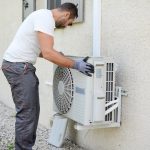Air pollution is an invisible yet ever-present danger that significantly impacts human health. In our modern, urbanized world, escaping its effects is becoming increasingly difficult. From exhaust fumes on busy roads to smoke emitted by factories and indoor pollutants, every breath we take can expose us to harmful substances. As a medical professional concerned with holistic well-being, I, Dr. Syed Arshad Husain, believe it’s essential for everyone to understand the hidden dangers of air pollution and adopt simple yet effective methods to shield themselves.
What Is Air Pollution?
Air pollution is a mix of solid particles and gases in the air, including particulate matter (PM2.5 and PM10), nitrogen dioxide (NO?), carbon monoxide (CO), sulfur dioxide (SO?), and ozone (O?). These pollutants are released by vehicles, factories, burning of fossil fuels, construction activities, and even indoor sources like cooking and smoking.
Everyday Health Risks of Air Pollution
Most people associate air pollution only with respiratory problems, but the risks extend far beyond the lungs.
1. Respiratory Issues
Air pollution directly affects the respiratory system. Pollutants like PM2.5 can penetrate deep into the lungs, causing inflammation, triggering asthma attacks, bronchitis, and long-term conditions like COPD (Chronic Obstructive Pulmonary Disease).
2. Cardiovascular Problems
Tiny airborne particles can enter the bloodstream through the lungs, increasing the risk of heart attacks, high blood pressure, stroke, and irregular heartbeats. Studies have shown that long-term exposure to polluted air is directly linked to heart disease.
3. Weakened Immune System
Chronic exposure to polluted air weakens the immune response, making individuals more prone to infections and slowing down the body’s natural healing abilities.
4. Cognitive and Mental Health Effects
Recent studies suggest a strong connection between air pollution and cognitive decline, including memory loss and neurodegenerative disorders like Alzheimer’s. Additionally, pollution is linked to increased anxiety, depression, and mood disorders—particularly in urban populations.
5. Children and Elderly at Higher Risk
Children have developing organs and breathe more air per unit of body weight, making them more vulnerable. The elderly, especially those with pre-existing conditions, are also at high risk for serious complications due to polluted air.
How to Shield Yourself from Air Pollution
Though we cannot control external pollution sources completely, we can take steps to reduce our exposure and protect our health.
1. Monitor Air Quality Regularly
Use air quality index (AQI) apps or websites to stay informed. On days when pollution levels are high, limit outdoor activities, especially exercise, which causes deeper breathing and greater intake of pollutants.
2. Wear a Mask
On particularly bad days, wearing an N95 or similar mask can help filter out particulate matter, especially if you live in a heavily trafficked area or commute long distances.
3. Keep Indoors Safe
Use air purifiers with HEPA filters in your home. Avoid burning candles or incense, and ensure proper ventilation when cooking. Houseplants like snake plants and peace lilies can also help purify indoor air.
4. Create a Green Environment
Planting trees and supporting green spaces in your community can help improve air quality over time. Even potted plants at home and balconies can make a difference.
5. Avoid Rush Hour and Traffic Zones
Whenever possible, avoid outdoor activities near heavy traffic, especially during rush hour. Take alternative routes with less congestion or schedule walks during times with better air quality.
Conclusion
Air pollution is more than a mere environmental concern—it’s a public health crisis with serious short- and long-term consequences. As a healthcare professional, I urge individuals and communities to educate themselves, adopt practical habits, and advocate for cleaner air. Taking small steps in your daily routine—like using air purifiers, wearing masks, or avoiding traffic zones—can significantly reduce exposure and protect your health. Awareness, prevention, and proactive behavior are our strongest shields against this silent threat.






